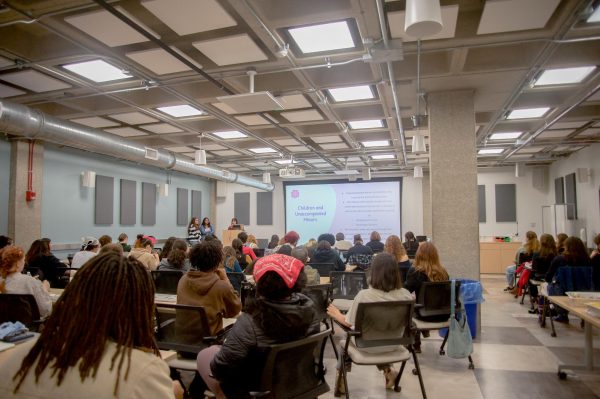Diverse Language Offerings Vital
During this time of financial crisis at Oberlin, students understandably feel an urgent need to defend their interests against potential budget cuts. Everyone wants to save programs from being cut, and everyone has programs and classes they want to be added to the Oberlin experience.
A frequent complaint from Oberlin students is about the lack of diverse foreign language options. Problems cited include a drastically underfunded Arabic language program and a lack of any African language or Hindi language programs.
Overall, I agree with the general arguments in favor of adding more foreign languages to the Oberlin curriculum. These languages are useful for many post-grad careers, and Oberlin does currently offer a disproportionate number of Western languages such as German, French, and Italian.
Furthermore, I believe that as a liberal arts institution, Oberlin has an obligation to provide its students with a robust selection of language-focused and cultural classes that will expose students to these languages and cultures and foster a deep respect for them.
However, students sometimes argue that because Oberlin offers several courses in dead languages — including Latin and Ancient Greek — that are ultimately not “useful,” the school should instead offer more “useful” languages, like Arabic, Hindi, and others. Ultimately, this argument is counterproductive to the larger conversation concerning foreign languages.
While it is true that Latin, for example, is a dead language, this does not make it useless or unworthy of study. There are, in fact, many benefits to studying Latin, both academically and professionally. Classics majors — many of whom study Latin or Ancient Greek as a requirement of the major — are some of the highest-scoring majors on the LSAT and statistically perform the highest in law school nationally. They also have better medical school acceptance rates than many science majors, and have one of the highest averages on the GRE out of any major.
Part of the reason why Latin in particular can be so beneficial is because of its close link to English — a good portion of American law and medical terminology is either written in or derived from Latin. Latin is also extremely helpful in any occupations that involve writing, as it helps students learn English grammar and increase their vocabulary. While Latin may not be spoken anymore, it still has many practical uses for students post-graduation, making it more than a “dead” language.
While studying classics can open students up to many different career opportunities, this is not solely what makes dead languages worthy of study, just as the utility of other foreign languages is not what makes them worthy of study. Sadly, it seems that many humanities and language departments find themselves defending their areas of study based on how they can give students an edge in the “real world” andon how they can influence the way we view people and cultures.
While utility may be a factor when choosing to learn another language, it’s more important to consider the appreciation and respect for cultures around the world that these languages can unlock. Students who are already in classes that focus on culture and diversity — whether it be Africana Studies, South Asian history, or Arab history courses — would be able to explore cultures more authentically if they were able to take a connected language class.
The rhetoric surrounding foreign languages devalues the very merit of studying them in the first place. During these times of financial difficulty, I understand that the administration is concerned with how financially useful an Oberlin degree can be for graduates. However, the attitude among students should be different. Students should acknowledge the merits of academic interests, and thus should support one another in advocating for our interests. Aside from being an incorrect claim, arguing that the “uselessness” of dead languages is a reason to add other foreign languages to Oberlin’s curriculum not only devalues the merits of foreign language classes, but also contributes to a more problematic notion that interests should only be pursued if they are deemed useful.
Oberlin should offer dead languages and a diverse range of other languages not simply because of their utility, but because of their intangible value. It is simply not productive to use the utility of certain languages to make a case against others. During times of budget cuts, students must support each other’s academic interests rather than cutting them down.


